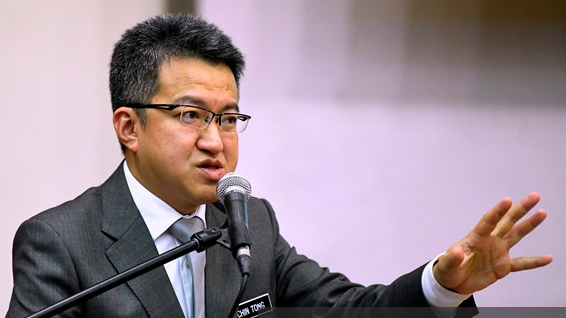PETALING JAYA: Attracting more foreign direct invesment (FDI) into Malaysia, can lead to higher wages, according to Deputy Investment, Trade and Industry Minister Liew Chin Tong.
He said that last year, the median wage in Malaysia was “too low” at RM2,424, and the government plans to gradually increase wages in stages.
Citing the New Industrial Master Plan 2030, he said one of the objectives outlined was to create an environment which could support a median wage of RM4,510 for workers in the manufacturing sector.
“Higher wages will benefit all sectors,“ Liew said during the CEO Series 2023 (Economy and Business Forum) yesterday, expressing that it will further motivate workers’ performances and productivity.
He said the government recognises the importance of attracting investment into the country, which could lead to higher wages for workers.
He also noted that Prime Minister Datuk Seri Anwar Ibrahim had secured high investments from his notable trips to China and the US.
“Once you have the investment, the next thing is, can you structure it in such a way that you pay better?,“ said Lee.
However, he reckoned that when wages reached a certain level, that would entice Malaysians working in Singapore to return to the job market in their homeland.
With higher wages, Liew said, Malaysia will be able to increase the adoption of automation in all industries.
“When the use of automation is higher, we would reduce reliance on unskilled foreign workers,“ he added.
Meanwhile, Real Estate and Housing Developers’ Association Institute chairman Datuk Jeffrey Ng said the Johor-Singapore Special Economic Zone (SEZ) offers potential growth opportunities, which will attract domestic and foreign investments into the country.
Ng said that last year, trade between both countries reached US$85.53 billion (RM399.7 billion), with Singapore emerging as a major source of FDI, contributing 8.3% to Malaysia’s total investments.
He added that the establishment of SEZ in Johor, will likely stimulate job creation.
“Currently, approximately 900,000 Malaysians work in Singapore, where approximately one third (300,000) Malaysians travel across the Johor-Singapore Causeway on a daily basis.
“Many of them work in Singapore lured by favourable exchange rates. The SEZ could contribute to better job opportunities in the Johor region, where some Malaysians, could be employed in our own country,” he said.
In addition, Ng said Johor will be the “state to watch” in 2024 as the SEZ could be a catalyst for regional infrastructure development, including transport, utilities as well as communication networks.
“This will create positive spillover effects on overall economic development including Forest City,“ he added .









